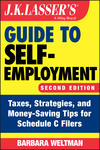Portability Election Relief
Under estate tax rules, if a spouse dies and does not use up his/her entire exemption amount ($5.49 million if death is in 2017), the surviving spouse’s estate can use the balance. This is called the deceased spousal unused exclusion amount (DSUE amount) or “portability.” It became effective with respect to decedents dying after 2010. In order to make this possible, the estate of the first spouse to die must make a timely election.
How to make the election. The election must be made within nine months of the death of the first spouse on a federal estate tax return. This is so whether or not the estate is large enough to be required to file an estate tax return (e.g., valued at more than $5.49 million for a spouse dying in 2017). No extension of time to make the election will be granted to an estate required to file an estates tax return, but the IRS may grant one to a smaller estate. The problem: To request an extension means submitting a private letter ruling request, and this can only be done if there is reasonable cause for the failure to timely elect portability. Moreover, there are substantial professional fees and IRS user fees for making the request. There had been a simplified request method, but it only applied through December 31, 2014.
Special relief. Because many small estates were unaware of the requirement to make an affirmative election, the IRS has provided relief to estates of decedents dying after 2011 and before January 2, 2016 (Rev. Proc. 2017-34, 2017-26 IRB 1282). These estates are given two years to submit an election; the deadline is January 2, 2018. State at the top of the return “FILED PURSUANT TO REV. PROC. 2017-34 TO ELECT PORTABILITY UNDER § 2010(c)(5)(A).”
If the surviving spouse has died and the estate paid estate tax that would not have been due if a portability election had been made, it can file Form 843, Claim for Refund and Request for Abatement, as a protective claim or refund of tax if the estate of the first spouse has now made or will make a portability election.
Pending legislation. The question of portability may become moot if Congress repeals the federal estate tax, a proposal that is currently under consideration. However, the rules for making an election should be following nonetheless should the estate tax be reinstated in the future.
Involuntary conversion
Forced disposition of property due to condemnation, theft, or casualty. Tax on gain from involuntary conversions may be deferred if replacement property is purchased.



